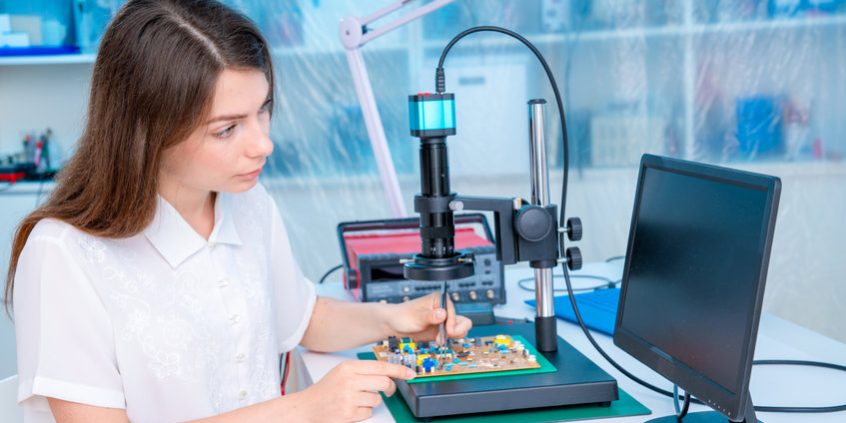The medical field is one of the most challenging yet exciting fields in the electronics manufacturing industry. A career in this field, however, involves the design and assembly of life-critical medical devices, and thus, a well-recognized IPC Certification is required for all production operators to ensure adhering to high quality and safety standards.
As students or trainees of IPC and electronics manufacturing courses/apprenticeships, the theoretical you learn in the classroom may apply differently once you’re in the real world due to a variety of factors involved. Even when you’re in an on-site IPC training, there are a lot of real-life applications that are often missed out in classrooms and training. It’s for these reasons that if you’re aspiring for a career in the electronics manufacturing industry, it’s also best to supplement your classroom and training learning with research and readings.
If you’re planning to venture into the medical field of PC assembly and design, here are some tips for you. It’s better to learn about them today so you won’t have to make the same mistakes once you begin your real journey into the medical electronics manufacturing industry.
Prioritize safety
Bear in mind that life-critical medical devices are generally installed inside or on the body, and thus, danger concerns and potential malfunctions on the PCB design and assembly must be eliminated to ensure the user’s safety as well as eliminate your company’s exposure to liabilities.
Provide as many test points as possible
By installing enough test points and a little bit more, debugging the medical device becomes easy when you’re trying to test the board for errors, diagnosing a malfunction and even doing PCB rework or repair. At the very least, the following areas should have test points:
- Power lines
- Clock and control signals
- Traces-carrying signals
It’s also practical to have the test points on the outer surfaces of the PC board so that when the components are assembled and finally enclosed in a container, it will still be convenient to perform the diagnostic and testing phase.
Train for your IPC Certification to ensure you’re well-aware of where to place your test points in your board design and assembly and to create the medical PCB that meets the highest quality and safety standards.
Plan the design with the components in mind
When actual components are chosen even during the PCB design stage, you ensure that the circuit board will be assembled without any problems. Here are some advantages of identifying your components during the board design stage:
- You can determine the actual sizes of the circuit components to use, and thus, design the board with the appropriate spaces necessary for their proper placement.
- You can design proper board layout considering that it’s better to place large components evenly to ensure the best thermal distribution.
- You, as a board/circuit designer, can discuss with the engineers about the possibility of further reducing component sizes for a smaller board footprint.
- You can identify components with long lead time so that they can be ordered way in advance to ensure sufficient supply once the assembly starts.
- You can avoid components that might become obsolete once the assembly begins
Smaller medical devices are better but there’s a limit
Electronic medical devices (or any electronic gadgets in general) are becoming smaller than ever. So you might want to design and assemble your medical PCBs with the smallest functioning components in mind. However, there’s a limit to how small your circuit boards can be. As of this time, the smallest surface-mounted component available on the market is around 0.6mm x 0.30mm (0201 package). If you want to really make something smaller through a contractor, make sure such contractor is capable of handling smaller component sizes.
Be updated with the latest standards in PCB design and assembly
To ensure you’re well-aware of the latest developments in the electronics manufacturing industry, enroll in electronics courses and on-site IPC training. Blackfox offers a wide range of courses and training solutions for the industry. It’s the worldwide leader in providing IPC Certification and Custom Training Systems to the industry’s top companies. Get in touch with us today.






